May 28, 2014 •
Wednesday Government Relations News
Lobbying “Bottom Line” in The Hill. “Big Business’ Summer Agenda | K Street Files” by Kate Ackley in Roll Call. “States and Localities Are Losing Their Influence in Washington” by J. B. Wogan in Governing. Campaign Finance “Campaigns Ignore State […]
 Lobbying
Lobbying
“Bottom Line” in The Hill.
“Big Business’ Summer Agenda | K Street Files” by Kate Ackley in Roll Call.
“States and Localities Are Losing Their Influence in Washington” by J. B. Wogan in Governing.
Campaign Finance
“Campaigns Ignore State Law at Their Peril | A Question of Ethics” by C. Simon Davidson in Roll Call.
California: “L.A. County requires electronic filings of campaign finance reports” by Abby Sewell in the Los Angeles Times.
Massachusetts: “Campaign finance bill is now law” by Douglas Moser in the Eagle-Tribune.
Wisconsin: “Judge who stopped Wisconsin campaign finance probe tied to Koch-funded junkets” by Chris Young in The Center for Public Integrity.
Ethics
North Carolina: “North Carolina elections board hiring longtime FBI agent to work on investigation team” by The Associated Press in The Republic.
South Carolina: “SC Senate votes against House ethics plan” by The Associated Press in The State.
Elections
“Oldest lawmaker kicked out” by Cameron Joseph in The Hill.
“An Update on the 2014 State Legislators to Watch” by Louis Jacobson in Governing.
“A Guide to the 36 Governors’ Races” by Louis Jacobson in Governing.
Texas: “Tea Party Conservatives Win Top GOP Runoff Contests” by Brandi Grissom in The Texas Tribune.
May 27, 2014 •
Federal Widely Attended Gathering Gift Ceiling is Now $375
In a May 23 legal advisory to federal designated agency ethics officials, the Office of Government Ethics announced it had raised the widely attended gathering gift exception ceiling for nonsponsor gifts of free attendance from $350 to $375. This revision […]
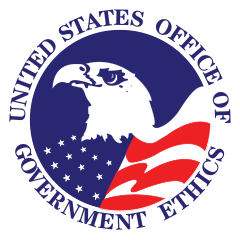 In a May 23 legal advisory to federal designated agency ethics officials, the Office of Government Ethics announced it had raised the widely attended gathering gift exception ceiling for nonsponsor gifts of free attendance from $350 to $375. This revision of 5 C.F.R. § 2635.204(g)(2) became effective May 19, 2014, when it was published in the Federal Register.
In a May 23 legal advisory to federal designated agency ethics officials, the Office of Government Ethics announced it had raised the widely attended gathering gift exception ceiling for nonsponsor gifts of free attendance from $350 to $375. This revision of 5 C.F.R. § 2635.204(g)(2) became effective May 19, 2014, when it was published in the Federal Register.
The Ethics Commission has issued an opinion for organizations accepting campaign contributions electronically. Advisory Opinion 2014-EC-002 permits organizations to accept electronic donations without requiring the donor to submit personal information if the information is already recorded. The commission issued the […]
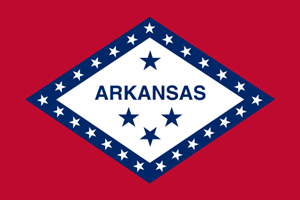 The Ethics Commission has issued an opinion for organizations accepting campaign contributions electronically. Advisory Opinion 2014-EC-002 permits organizations to accept electronic donations without requiring the donor to submit personal information if the information is already recorded.
The Ethics Commission has issued an opinion for organizations accepting campaign contributions electronically. Advisory Opinion 2014-EC-002 permits organizations to accept electronic donations without requiring the donor to submit personal information if the information is already recorded.
The commission issued the opinion at the request of ActBlue, a political action committee for Democratic candidates across the country. The ActBlue website requires personal information of the donor to be submitted, but not resubmitted for subsequent contributions.
The committee asked if this practice complied with a statutory requirement for electronic records to include the donor’s name, address, place of business, employer, and occupation “at the time of making the contribution.” The commission concluded even if some of the required donor information was provided prior to a contribution, the record would comply with the statute.
May 27, 2014 •
Tuesday Lobbying and Campaign Finance News Update
Lobbying “Patton Boggs, Squire Sanders to merge” by Megan R. Wilson in The Hill. “Bitcoin gets a lobbyist” by Julian Hattem in The Hill. Illinois: “Retired congressman cashes in as transit lobbyist, consultant” by Chuck Neubauer and Sandy Bergo in […]
 Lobbying
Lobbying
“Patton Boggs, Squire Sanders to merge” by Megan R. Wilson in The Hill.
“Bitcoin gets a lobbyist” by Julian Hattem in The Hill.
Illinois: “Retired congressman cashes in as transit lobbyist, consultant” by Chuck Neubauer and Sandy Bergo in the Chicago Sun-Times.
Campaign Finance
“GOP Sues to End Fundraising Limits on Political Parties” by Brody Mullins in The Wall Street Journal.
“Shrinking Line Separates Campaign Donations From Bribes” by Albert R. Hunt in Bloomberg.
Arkansas: “Arkansas Ethics Panel Issues Opinion On Electronic Campaign Contributions” in the Times Record.
New Jersey: “Special interest money in Newark election fuels debate over campaign finance reform” by Ted Sherman in The Star-Ledger.
New York: “NY won’t enforce $150G contribution limit on individual donors” by Michael Gormley in Newsday.
New York: “Poll finds New Yorkers support campaign finance” by The Associated Press in The Wall Street Journal.
Virginia: “McAuliffe vetoes bill that would ban donations from companies seeking economic grants” by Jenna Portnoy in The Washington Post.
Wisconsin: “Will Wisconsin follow FEC’s lead on bitcoin approval?” by Steven Elbow in The Capital Times.
Ethics
New York: “NY lawmaker’s campaign manager quits” by Cameron Joseph in The Hill.
Pennsylvania: “Pennsylvania has one of nation’s most lax ethics laws for politicians” by Karen Shuey in Lancaster Online.
Rhode Island: “Candidates for governor discuss R.I.’s reputation for secrecy, cronyism / Video” by C. Eugene Emery, Jr. in the Providence Journal.
South Carolina: “SC ethics reform likely will not include independent oversight of legislators” by Andrew Shain in The State.
May 27, 2014 •
San Francisco, California Board to Decide Lobbying Ordinance
The Board of Supervisors will soon vote on ethics legislation introduced last year by City Attorney Dennis Herrera and Board of Supervisors President David Chiu. Ordinance 130374 would amend the Campaign and Governmental Conduct Code to expand the definition of […]
 The Board of Supervisors will soon vote on ethics legislation introduced last year by City Attorney Dennis Herrera and Board of Supervisors President David Chiu. Ordinance 130374 would amend the Campaign and Governmental Conduct Code to expand the definition of lobbyist and require random audits of lobbying reports.
The Board of Supervisors will soon vote on ethics legislation introduced last year by City Attorney Dennis Herrera and Board of Supervisors President David Chiu. Ordinance 130374 would amend the Campaign and Governmental Conduct Code to expand the definition of lobbyist and require random audits of lobbying reports.
The lobbying exemption for contractors and their attorneys would be limited to in-house officers and employees. Meeting the definition of a lobbyist would depend on the number of contacts with officials rather than the previous measure of compensation. Outside consultants communicating with public officials regarding contract bidding and negotiating would be subject to the registration and reporting requirements of lobbying.
The ordinance will likely be decided at the board meeting on June 10, 2014.
Today, the Republican National Committee (RNC) filed a lawsuit in the United States District Court District of Columbia asking that political parties be able to collect unlimited political contributions for independent expenditures. In RNC v. Federal Election Commission (FEC), the […]
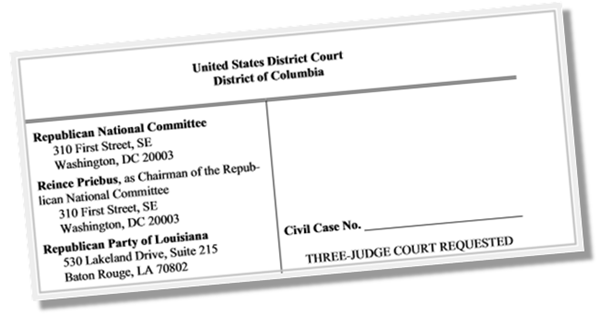
Today, the Republican National Committee (RNC) filed a lawsuit in the United States District Court District of Columbia asking that political parties be able to collect unlimited political contributions for independent expenditures.
In RNC v. Federal Election Commission (FEC), the RNC argues the First Amendment protects the right of political parties to engage in unlimited independent expenditures and accept unlimited contributions to accounts maintained by those parties when designated solely for independent expenditures.
The RNC wants to conduct this independent activity in select U.S. Senate and House Races in 2014 followed in 2016 in the race for the President.
On May 21, a similar lawsuit was brought against the FEC by the Libertarian National Congressional Committee asking for comparable relief.
Gov. Terry McAuliffe has vetoed two bills unanimously passed by the legislature designed to restrict his ability to solicit gifts and campaign contributions. The identical bills would have prevented the governor, his campaign committee, and any PAC established on his […]
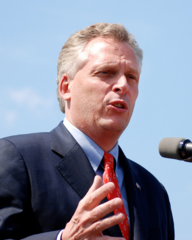 Gov. Terry McAuliffe has vetoed two bills unanimously passed by the legislature designed to restrict his ability to solicit gifts and campaign contributions. The identical bills would have prevented the governor, his campaign committee, and any PAC established on his behalf from soliciting or accepting gifts or contributions exceeding $50 from any person or entity seeking loans or grants from the Governor’s Development Opportunity Fund.
Gov. Terry McAuliffe has vetoed two bills unanimously passed by the legislature designed to restrict his ability to solicit gifts and campaign contributions. The identical bills would have prevented the governor, his campaign committee, and any PAC established on his behalf from soliciting or accepting gifts or contributions exceeding $50 from any person or entity seeking loans or grants from the Governor’s Development Opportunity Fund.
The governor sent the bills back with amendments extending the rules to members of the General Assembly, but both houses rejected the amendments to their bills.
The governor argued the restrictions should extend to the General Assembly because, although he awards loans and grants from the fund, the money is appropriated by the General Assembly. Legislators responded it would be impractical to include them in the bills, because they are not privy to such high-level economic development talks or information about the parties involved.
Photo of Gov. Terry McAuliffe courtesy of Kate Wellington on Wikimedia Commons.
May 23, 2014 •
GAO Issues Report on Debarment Programs
On May 21, the U.S Government Accountability Office (GAO) issued a report describing the steps taken to improve the suspension and debarment programs of some agencies with federal contracts and grants. The report, prepared for the House of Representatives Committee […]
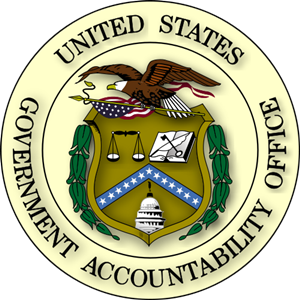 On May 21, the U.S Government Accountability Office (GAO) issued a report describing the steps taken to improve the suspension and debarment programs of some agencies with federal contracts and grants. The report, prepared for the House of Representatives Committee on Oversight and Government Reform, found “the number of suspension and debarment actions government-wide has more than doubled from 1,836 in fiscal year 2009 to 4,812 in fiscal year 2013.”
On May 21, the U.S Government Accountability Office (GAO) issued a report describing the steps taken to improve the suspension and debarment programs of some agencies with federal contracts and grants. The report, prepared for the House of Representatives Committee on Oversight and Government Reform, found “the number of suspension and debarment actions government-wide has more than doubled from 1,836 in fiscal year 2009 to 4,812 in fiscal year 2013.”
In 2011, the GAO had recommended strengthening federal agency suspension programs by implementing “dedicated staff, detailed policies and procedures, and an active referral process.” The six agencies reviewed for the report had all carried out some of the previous recommendations. The GAO did not make any new recommendations in its report. The report can be found here.
May 23, 2014 •
News You Can Use Digest – May 23, 2014
National: Glass Ceilings in Statehouses in the Northeast New York Times – Jonathan Martin | Published: 5/18/2014 The Democratic Party has yet to elect a female governor in Pennsylvania, New Jersey, New York, Rhode Island, or Massachusetts. Even this year, […]

National:
Glass Ceilings in Statehouses in the Northeast
New York Times – Jonathan Martin | Published: 5/18/2014
The Democratic Party has yet to elect a female governor in Pennsylvania, New Jersey, New York, Rhode Island, or Massachusetts. Even this year, with women running for governor in three of those states, it is uncertain that any of them will break the pattern. It is no quirk of history, according to a few dozen politicians, scholars, and strategists who have examined or experienced firsthand the difficulties women have had in seeking to become chief executives in some of the flagship states of blue America.
From the States and Municipalities:
Connecticut – Judge Orders Settlement Try in DGA Campaign Case
Connecticut Mirror – Mark Pazniokas | Published: 5/21/2014
U.S. District Court Judge Janet Hall ordered settlement talks to begin in a case in which the Democratic Governors Association (DGA) claims the State Elections Enforcement Commission and Connecticut campaign laws restrict its First Amendment right to spend money on behalf of Gov. Dannel Malloy in the coming election. Hall sharply questioned lawyers for both sides in open court, probing the DGA’s legal standing to challenge a statute it is yet to be accused of violating, and testing whether the state law comports with recent court rulings minimizing restrictions on campaign contributions.
Delaware – Markell Ties Benefit from Collections Contracts
Delmarva Daily Times – Jonathan Starkey (Wilmington News Journal) | Published: 5/19/2014
Gov. Jack Markell’s administration has paid millions of dollars to law firms tied to supporters and former staff members that were hired to help collect money from out-of-state businesses incorporated in Delaware. Nothing about the relationships and contracts is illegal. But the contracts raise questions about how Markell, who came into the governor’s office critical of backroom deals that benefit insiders, runs the program that collects so much state revenue. James Browning of Common Cause said the state should require better lobbying disclosures for those seeking public business.
Georgia – Ethics Commission Whistleblower Talks About Trial
WXIA – Catherine Beck | Published: 5/21/2014
In an interview, former state ethics commission Executive Secretary Stacey Kalberman recounted the turbulent last three years she has faced. In dealing with an ethics case against Georgia Gov. Nathan Deal, Kalberman lost her job, her professional reputation, and the Atlanta community she had lived in for more than 25 years. But she won from a jury what she needed the most: vindication.
Illinois – Watchdog Wants Stricter Cook County Lobbying Rules
Chicago Tribune – Hal Dardick | Published: 5/19/2014
Cook County Inspector General Patrick Blanchard issued a report that calls for stricter rules after finding “rogue lobbyists” are ignoring requirements to register or report their activities. He said people selling products to the government escape from all lobbying requirements under a loophole in the county ordinance. County Clerk David Orr, who introduced the county’s lobbyist reporting requirements, said he was open to the reforms that Blanchard proposed.
Indiana – State Giving $345K to Eric Turner Company Project
Belleville News Democrat – Tom LoBianco (Associated Press) | Published: 5/20/2014
The Indiana Economic Development Corp. awarded Mainstreet Property Group $345,000 for the construction of a nursing home that is expected to net House Speaker Pro Tem Eric Turner $1.8 million. It was one of many Mainstreet projects that Turner helped save when he defeated legislation that would have banned the construction of new nursing homes. Turner owns 50 percent of a company which owns 76 percent of Mainstreet.
Louisiana – Federal Judge: Ethics gag rule is unconstitutional
New Orleans Advocate – Sara Pagones and Faimon Roberts III | Published: 5/16/2014
A federal judge granted Terry and Laura King’s request to strike down a state law under which the couple was charged with a crime for allegedly making public statements about an ethics complaint they filed against St. Tammany Parish Coroner Peter Galvan. The Kings filed a lawsuit challenging the constitutionality of the law, saying it violates citizens’ rights to freedom of speech. U.S. District Court Judge Martin Feldman agreed that the section of the law used to prosecute the Kings is too broad.
Maine – National Anti-Same-Sex Marriage Group Could Be Fined for Role in 2009 Campaign
Portland Press Herald – Eric Russell | Published: 5/19/2014
A national group that helped defeat a same-sex marriage law in Maine could face more than $50,000 in fines for violating the state’s campaign finance laws. The state ethics commission said its investigators found the National Organization for Marriage (NOM) should be fined for failing to register as a ballot question committee and not filing reports. NOM was the primary donor when it gave nearly $2 million to Stand for Marriage Maine, a PAC, to help defeat the law in a 2009 referendum. State law requires groups to register if they raise or spend more than $5,000 to influence a state ballot question.
Massachusetts – Mayor Walsh Received $1.4M in Gifts for Gala, Transition
Boston Globe – Andrew Ryan | Published: 5/19/2014
Boston Mayor Martin Walsh received $1.4 million in private donations for his inauguration and transition, with most of the contributions coming from corporations, developers, lobbyists, and others who do business with the city. Walsh used no tax dollars for the January inauguration, and he barred money from PACS and organized labor, although unions hosted a private reception for the new mayor. The administration suggested a cap of $25,000 for donors and voluntarily disclosed all contributions and expenditures. Walsh said it did not pose a conflict to accept money from companies with interests before the city.
Minnesota – Federal Court: Minnesota must lift limit on political donations
Minneapolis Star Tribune – Rachel Stassen-Berger | Published: 5/20/2014
Minnesota’s law limiting the amount of money candidates can take from lobbyists, PACs, and big donors is on hold after a ruling by a federal judge. U.S. District Court Judge Donovan Frank suspended the law while a court challenge plays out. The statute in question says candidates can only accept 20 percent of their contributions from certain types of donors and then must abide by lower limits after that.
New Jersey – National Group Gives NJ Contractors a New Way to Influence Elections
Newark Star Ledger – Matt Friedman | Published: 5/18/2014
Contributions to GOPAC, a Washington-based nonprofit political advocacy group, reveal how such organizations allow contractors to get around state and local laws designed to keep them from making big campaign donations in New Jersey. Some of the candidates and committees were restricted from taking major donations directly from the contractors because of New Jersey’s web of “pay-to-play” laws aimed at keeping political money from influencing the awarding of contracts. But the contractors are free to donate to GOPAC, which is allowed to give money to any candidate.
North Carolina – NC Legislature Adopts New Rules on Protests
Raleigh News & Observer – Craig Jarvis | Published: 5/15/2014
North Carolina lawmakers adopted new rules governing protests at the Legislative Building. The move was prompted by legal concerns over the guidelines cited by judges hearing the cases of some of the more than 900 people who were arrested in last year’s “Moral Mondays” demonstrations at the General Assembly. But the process, rushed through on the second day of session in advance of the anticipated first round of protests this year, drew criticism from Democratic legislators.
Oklahoma – Oklahoma Gov. Mary Fallin Signs Bill to Change Local Campaign Finance Reporting Law
The Oklahoman – Rick Green | Published: 5/20/2014
A bill signed into law by Oklahoma Gov. Mary Fallin imposes a new disclosure requirement for groups that make independent expenditures to local campaigns. These groups will be required to identify donors who contribute more than $50. The law also designates the state Ethics Commission as the body to enforce local campaign finance statutes.
Vermont – Donor Rules Same for All VT Candidates
Burlington Free Press – Nancy Remsen | Published: 5/19/2014
Vermont Attorney General William Sorrell issued guidance saying the state would not enforce different contribution limits for candidates who run in both a primary and general election and candidates running for the same office who have only one election. All candidates will now be allowed to accept $2,000 per donor, even if they do not have a primary. This policy applies through December 31, 2014, after which new donations limits take effect for the next election cycle.
Wisconsin – Lobbyists to Be Allowed to Make Campaign Donations during Legislative Session
Wisconsin State Journal – Mary Spicuzza | Published: 5/22/2014
The Wisconsin Government Accountability Board said lobbyists can pass along campaign contributions made by others, such as PACs, at any time of the year. A new campaign finance law raised questions about what the rules for lobbyists were. The board decided that timing limitations for lobbyist donations to candidates apply only to personal contributions, and not those they are delivering on behalf of others.
 State and Federal Communications produces a weekly summary of national news, offering more than 80 articles per week focused on ethics, lobbying, and campaign finance.
State and Federal Communications produces a weekly summary of national news, offering more than 80 articles per week focused on ethics, lobbying, and campaign finance.
News You Can Use is a news service provided at no charge only to clients of our online Executive Source Guides, or ALERTS™ consulting clients.
May 22, 2014 •
AZ Governor Calls Special Session
Today Arizona Gov. Jan Brewer called for a special session of the Legislature to convene on May 27. According to Brewer’s press release, the purpose of the special session will be to “overhaul the state’s child safety system” by creating […]
 Today Arizona Gov. Jan Brewer called for a special session of the Legislature to convene on May 27.
Today Arizona Gov. Jan Brewer called for a special session of the Legislature to convene on May 27.
According to Brewer’s press release, the purpose of the special session will be to “overhaul the state’s child safety system” by creating and funding an entity called the Department of Child Safety, “a new, stand-alone agency whose sole focus is the safety of Arizona’s children.”
If passed, the state child welfare programs would be removed from the authority of the Department of Economic Security.
The regular session adjourned on April 24.
Photo of the Arizona State Capitol courtesy of Jeff Dean on Wikimedia Commons.
May 22, 2014 •
New Brunswick Passes Lobbyists’ Registration Act
The day before scheduled adjournment, New Brunswick’s Legislative Assembly approved the Lobbyists’ Registration Act, establishing a lobbyist registry for the province. The Act establishes a registrar of lobbyists and outlines requirements for registration by consultant and in-house lobbyists. The province […]
 The day before scheduled adjournment, New Brunswick’s Legislative Assembly approved the Lobbyists’ Registration Act, establishing a lobbyist registry for the province.
The day before scheduled adjournment, New Brunswick’s Legislative Assembly approved the Lobbyists’ Registration Act, establishing a lobbyist registry for the province.
The Act establishes a registrar of lobbyists and outlines requirements for registration by consultant and in-house lobbyists.
The province attempted to create a registry a number of times over the last several years, but failed because of financial concerns and technical complications.
May 22, 2014 •
Canada Lobbying Commissioner Reports on Public Feedback
Commissioner of Lobbying Karen Shepherd intends to revise the Lobbyists’ Code of Conduct following a period of public consultation launched in September 2013. The consultation offered participants the chance to submit suggestions for improvement by writing and by roundtable discussion. […]
 Commissioner of Lobbying Karen Shepherd intends to revise the Lobbyists’ Code of Conduct following a period of public consultation launched in September 2013.
Commissioner of Lobbying Karen Shepherd intends to revise the Lobbyists’ Code of Conduct following a period of public consultation launched in September 2013.
The consultation offered participants the chance to submit suggestions for improvement by writing and by roundtable discussion. Suggestions included deregulation of lobbyist-client interactions and more clarity in the gift law.
Shepherd has produced a report on the consultation available here.
The Government Accountability Board (GAB) voted to allow lobbyists to pass along donations from political action committees and clients to state lawmakers at any point during the year. GAB previously concluded recently signed Senate Bill 655 removed the ability of […]
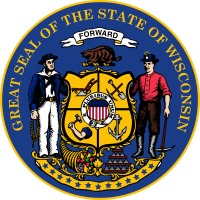
The Government Accountability Board (GAB) voted to allow lobbyists to pass along donations from political action committees and clients to state lawmakers at any point during the year.
GAB previously concluded recently signed Senate Bill 655 removed the ability of lobbyists to deliver anyone else’s contribution at any time.
The change in interpretation was supported by Republican legislative leaders, lobbyists, and attorneys for the Legislature.
May 22, 2014 •
Thursday News Roundup
Lobbying “Former Rep. Billy Tauzin joins son’s lobby firm” by Megan R. Wilson in The Hill. Canada: “Lobbyist watchdog to revise conduct code this summer” by Kady O’Malley on CBC News. Campaign Finance “Campaign Finance Reports Put Voters on Notice” […]
 Lobbying
Lobbying
“Former Rep. Billy Tauzin joins son’s lobby firm” by Megan R. Wilson in The Hill.
Canada: “Lobbyist watchdog to revise conduct code this summer” by Kady O’Malley on CBC News.
Campaign Finance
“Campaign Finance Reports Put Voters on Notice” by The Associated Press on ABC News.
“The new campaign contribution: I’ll get my employees to vote for you” by Philip Bump in The Washington Post.
“State campaign finance laws are on borrowed time” opinion piece by George F. Will in The Washington Post.
Michigan: “Ex-Meijer attorney cleared of wrongdoing in Northern Michigan campaign finance scandal” by Shandra Martinez in Michigan Live.
Ethics
Georgia: “Kalberman ethics case to cost state over $1 million” by Aaron Gould Sheinin in The Atlanta Journal-Constitution.
Hawaii: “State Task Force Members Must Disclose Financial Ties Under Ethics Ruling” by Nathan Eagle in the Honolulu Civil Beat.
South Carolina: “SC House’s latest version of ethics reform creates super commission to investigate allegations” by Andrew Coffman Smith (Associated Press) in The Republic.
State Legislatures
Arizona: “Brewer expected to call special legislative session on CPS today” by Howard Fischer in the Arizona Daily Star.
Minnesota: “Sen. Gazelka comments on end of 2014 Legislative Session” in the Pilot-Independent.
Montana: “Special legislative session for Medicaid expansion, other issues?” by Mike Dennison in the Billings Gazette.
Redistricting
Florida: “In redistricting first, House speaker testifies in court to defend map” by Mary Ellen Klas in the Miami Herald.
Illinois: “Illinois redistricting group lacks signatures” by Chacour Koop (Associated Press) in the Northwest Herald.
Virginia: “Va. redistricting trial begins in federal court” by The Associated Press in the Washington Times.
State and Federal Communications, Inc. provides research and consulting services for government relations professionals on lobbying laws, procurement lobbying laws, political contribution laws in the United States and Canada. Learn more by visiting stateandfed.com.


